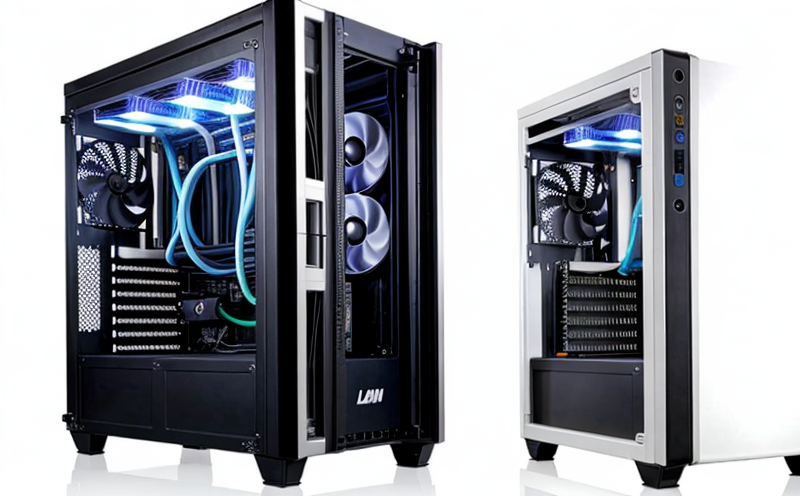ISO 15099 Radiant Heating System Performance
The ISO 15099 standard is a widely recognized framework that ensures the performance, safety, and efficiency of radiant heating systems. This service focuses on testing these systems to meet the stringent requirements laid out in this international standard. The primary goal of our testing is to ensure that radiant heating systems function as expected under real-world conditions, providing accurate measurements of their performance parameters such as power output, heat distribution, and energy efficiency.
Before we delve into the specifics of ISO 15099 testing, it's important to understand the broader context within which this standard operates. Radiant heating systems are essential components in modern HVAC (Heating, Ventilation, and Air Conditioning) solutions, particularly for residential and commercial buildings. These systems use radiant elements—typically electric or hydronic—to transfer heat directly from a source to an object or surface without much intervening medium.
The ISO 15099 standard covers various aspects of these heating systems, including their design, installation, commissioning, operation, and maintenance. Testing according to this standard helps ensure that the radiant heating system meets the specified criteria for performance and capacity. This includes assessing parameters like heat output, temperature distribution, and energy consumption under different operating conditions.
One of the key benefits of ISO 15099 testing is its focus on real-world performance. Unlike some other standards that may prioritize theoretical maximums or simplified models, ISO 15099 takes into account practical scenarios where the system will be used. This ensures that the tested systems are not only theoretically sound but also practically effective.
Our testing process begins with a thorough review of the radiant heating system’s design and specifications. This step is crucial for understanding how the system should perform under various conditions. We then proceed to conduct a series of tests, including static and dynamic assessments, to evaluate key performance indicators (KPIs) such as heat output, temperature uniformity, and response time.
During these tests, we use advanced instrumentation to measure real-time data on the system’s performance. This includes temperature sensors placed at strategic points within the heating zone, power meters to monitor energy consumption, and flow meters for hydronic systems. The data collected is then analyzed against the ISO 15099 standards to ensure compliance.
Once testing is complete, we compile a comprehensive report detailing our findings. This report not only outlines whether the system meets the required performance criteria but also provides insights into any areas where improvements can be made. For example, if certain parts of the heating zone are consistently under-performing, this information can guide further optimization efforts.
The importance of ISO 15099 testing cannot be overstated for several reasons. Firstly, it enhances product quality and reliability by identifying potential issues early in the development or installation process. Secondly, compliance with international standards like ISO 15099 is crucial for market access in many countries, thereby ensuring that your products are accepted globally.
Moreover, this testing helps build trust among end-users who rely on the accuracy and dependability of their heating systems. By demonstrating adherence to recognized industry standards, you can differentiate your product from competitors and potentially command a premium price point in the market.
Customer Impact and Satisfaction
Ensuring that radiant heating systems meet the stringent requirements of ISO 15099 is not only beneficial for manufacturers but also directly impacts end-users. When these systems are tested to this standard, it means they will deliver consistent performance across different environments and conditions.
For customers, this translates into a more efficient and comfortable heating experience. The accurate heat distribution provided by ISO 15099-compliant systems ensures that every corner of the space receives adequate warmth without excessive energy consumption. This leads to lower utility bills and reduced environmental impact due to optimized energy use.
Furthermore, compliance with international standards like ISO 15099 can significantly enhance customer satisfaction by alleviating concerns about product quality and reliability. Knowing that their heating system has been rigorously tested according to recognized protocols provides peace of mind and encourages repeat business and positive word-of-mouth referrals.
In the competitive HVAC industry, demonstrating adherence to such standards is often a deciding factor for potential customers. It signals that you are committed to delivering high-quality products that meet global expectations. This can lead to increased market share and stronger brand loyalty among satisfied customers.
International Acceptance and Recognition
- The ISO 15099 standard has been adopted by numerous countries around the world, ensuring that tested radiant heating systems are accepted in diverse markets. This broad acceptance makes it easier for manufacturers to export their products globally without facing additional compliance hurdles.
- By adhering to this international standard, companies can participate in global tenders and bidding processes with confidence, knowing that their products meet the highest quality standards recognized internationally.
- The widespread use of ISO 15099 across different regions also promotes consistency in product performance expectations. This uniformity helps ensure that consumers receive a consistent experience regardless of where they are located geographically.
Competitive Advantage and Market Impact
In the competitive landscape of HVAC equipment testing, ISO 15099-compliant services offer several advantages. By offering this specialized testing service, you position your company as a leader in quality assurance and product reliability.
The ability to provide comprehensive testing that aligns with international standards sets you apart from competitors who may not offer the same level of expertise or rigor. This differentiation can attract discerning customers who value precision and dependability in their HVAC solutions.
Moreover, compliance with ISO 15099 can open doors to new markets where international standards are required for market entry. This global reach can significantly expand your customer base and increase sales opportunities.
The positive impact on brand reputation is another important aspect of this service. By consistently delivering high-quality testing results, you build a strong reputation as a trusted partner in the HVAC industry. This trust translates into long-term relationships with satisfied customers who are likely to recommend your services to others.





